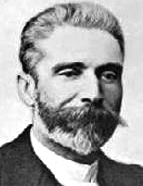

Teles was not a historian in the literal sense of the term, but he reflected on Portugal’s past and its effects on contemporary society. In harmony with the prevailing positivism, he believed in history as a science, making a case for modern scientific methods, emphasising the importance of documents found in archives and displaying a great concern for truth and exactitude. To his mind the narrative-construction process entailed observing and analysing the facts while subjecting them to in-depth critical examination, with the goal of validating or refuting an initial thesis that served as a starting point from which to interpret events.
Using the experimental method, Teles looked for causes, effects and explanations; his analyses sought to arrive at a general understanding of the history of Portugal, with a political and ideological purpose in which the past could be used to explain the present and permit glimpses of the future. Like so many others of his generation, who also espoused the theories of scientism and evolutionism, Teles saw the nation as a living organism – subject to cyclical periods of apogee and decadence – and looked to the study of its origins in order to find the intrinsic characteristics that defined its historical individuality and moral personality, in the belief that therein lay both the solution for the future and the way to resolve the present crisis.
Following in the footsteps of Alexandre Herculano, Teles admired the Portuguese Middle Ages, highlighting what he saw as the rural and noble nature of a population that devoted itself to agriculture and a salutary small trade, living in a frugal and healthy self-sufficiency under the aegis of an organic municipalism that respected local freedoms. Like that first historian (Herculano), he believed that this was the period that best consubstantiated the nation’s soul and represented the authentic, unique Portugal rooted in its origins (Estudos históricos e económicos [Historical and economic studies], 1901, p. 21). Teles also shared with Herculano the idea that this period of apogee was followed by one of decline, based on a mercantilism that was “calamitous, because it was adventurous and exotic” (O problema agrícola, 1899, p. 259), and on an all-absorbing centralism, which had caused the generalised desertion of the land and the loss of the best elements of Portuguese society. In line with the anthropological, ethnological and geographical arguments that were current at the time, Teles felt that this change of course also represented a struggle between populations with different ethnic characteristics and ways of life – the Arian peoples of the north and the Semite (Mozarab) peoples of the south of the country. In his view the former were the representatives of the original peninsular communities – folk whom he thought of as credulous and rough, but imbued with a deep connection to their native soil and thus deserving of his affection; while the others, from beyond the Tagus, were “tainted with Semitic blood” (Estudos históricos..., p. 19). Although he said that they were more cultured and progressive, he clearly harboured ill feelings towards the latter population, seeing them as foreigners “with a Euro-African, mixed and indefinable essence” (Idem, pp. 19 and 47).
